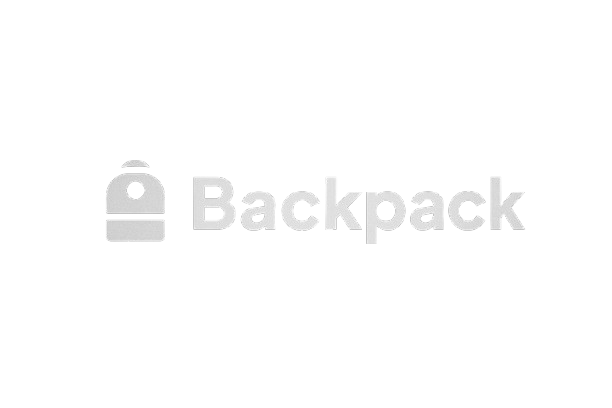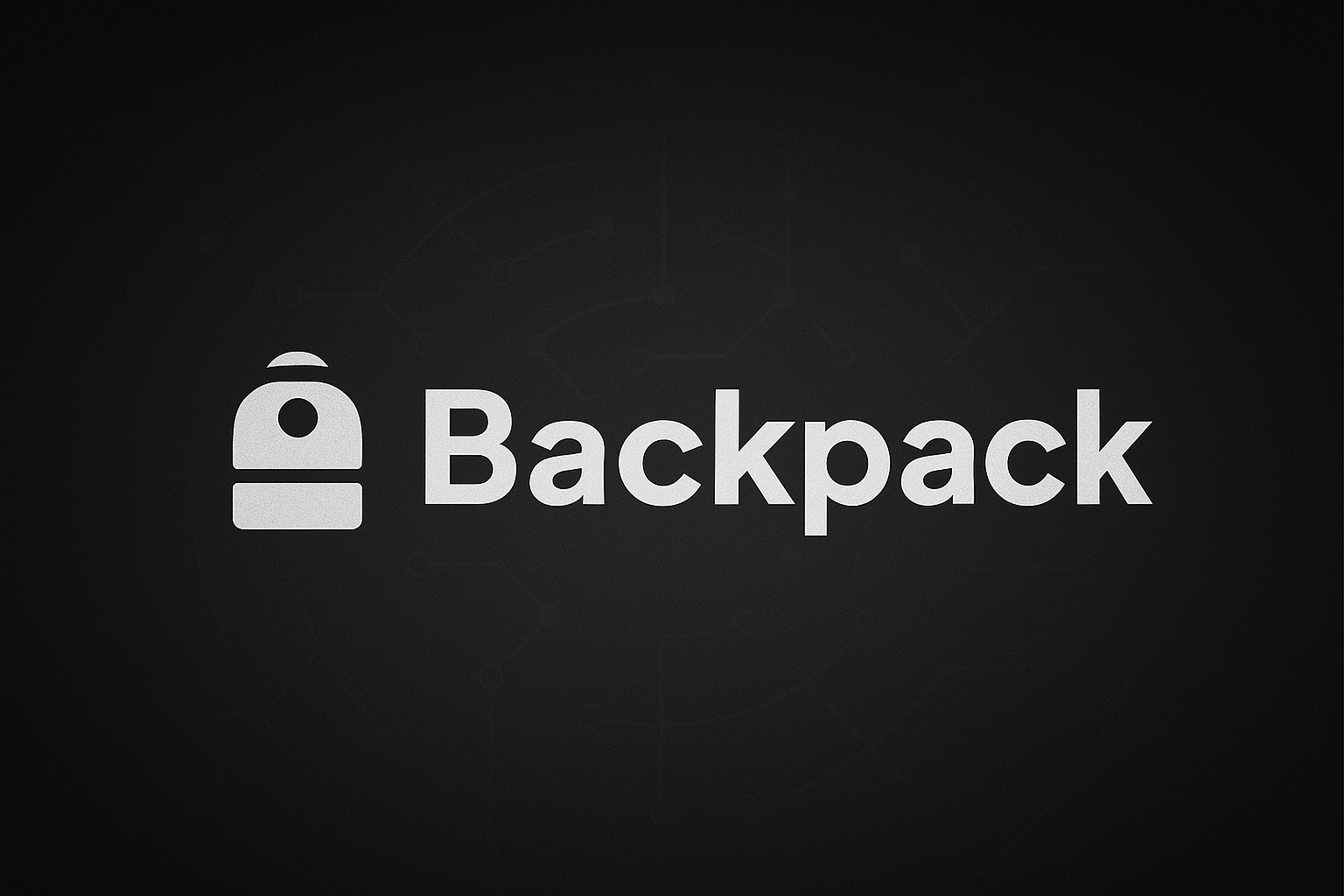Trusted by global brands









.svg)
-Photoroom.png)
.svg)
.svg)
.svg)
.svg)

.svg)
.svg)
.svg)
.svg)
.svg)
.svg)
.svg)
.svg)
500+
100%
30 years
6 years
14 days

What our past clients say
“Our clients consistently highlight the dedication, transparency, and results-driven approach we bring to every project. ''


Trusted talent partner



Explore Leadership Opportunities in Crypto with the Best Crypto Headhunters

.svg)

Hiring for the future of finance with the #1blockchain recruitment partner

What leaders say about us
A few words from founder himself
.svg)
.svg)

.avif)
Why work with us – trusted web3 recruiters

Full Attention for Quality Hiring
- Top candidates
- Faster hiring times
- First class service
Save Time With Smart Hiring
Real Results That Work
- Hires in under 14 days
- A 100% retention rate


Don't take our word for it
The best way to understand the value we bring to every project is to hear directly from those who have experienced it firsthand. These testimonials reflect my commitment to delivering exceptional results and building lasting relationships
.png)
.png)
.png)
.png)
.png)
"Amazing work Luka, couldn’t have been better to work and communicate with. Professional, fast and made excellent suggestions to give a really high quality end product.Will definitely be using again and would highly recommend his services for both design & development - and a really great guy too!"
.png)
.png)
.png)
.png)
.png)
"Luka is excellent when it comes to WebFlow. Works fast, easy to communicate with and does a great job when it comes to website development. Would recommend him to anyone looking for Webflow experts."
.png)
.png)
.png)
.png)
.png)
"Luka is amazing to work with in every way! He is responsive, has excellent communication skills, and delivers work quickly and at a very high standard.I would personally recommend 100% him to anyone who's looking for Webflow wizard."
.png)
.png)
.png)
.png)
.png)
"Luka did a brilliant job in creating a form in webflow for my portfolio website. The form's design and functionality was more than I expected. Communication with Luka was excellent and he provided regular updates on project's progress.I would recommend him to anyone who needs help with webflow."
.png)
.png)
.png)
.png)
.png)
"Luka was amazing to work with. Very responsible, communicative and he delivered faster and more then I expected. Would personally recommend him to anyone who's looking for someone to solve their Webflow related jobs quickly and efficiently."
.png)
.png)
.png)
.png)
.png)
"Amazing work Luka, couldn’t have been better to work and communicate with. Professional, fast and made excellent suggestions to give a really high quality end product.Will definitely be using again and would highly recommend his services for both design & development - and a really great guy too!"
.png)
.png)
.png)
.png)
.png)
"Luka is excellent when it comes to WebFlow. Works fast, easy to communicate with and does a great job when it comes to website development. Would recommend him to anyone looking for Webflow experts."
.png)
.png)
.png)
.png)
.png)
"Luka is amazing to work with in every way! He is responsive, has excellent communication skills, and delivers work quickly and at a very high standard.I would personally recommend 100% him to anyone who's looking for Webflow wizard."
.png)
.png)
.png)
.png)
.png)
"Luka did a brilliant job in creating a form in webflow for my portfolio website. The form's design and functionality was more than I expected. Communication with Luka was excellent and he provided regular updates on project's progress.I would recommend him to anyone who needs help with webflow."
.png)
.png)
.png)
.png)
.png)
"Luka was amazing to work with. Very responsible, communicative and he delivered faster and more then I expected. Would personally recommend him to anyone who's looking for someone to solve their Webflow related jobs quickly and efficiently."
.png)
.png)
.png)
.png)
.png)
"Amazing work Luka, couldn’t have been better to work and communicate with. Professional, fast and made excellent suggestions to give a really high quality end product.Will definitely be using again and would highly recommend his services for both design & development - and a really great guy too!"
.png)
.png)
.png)
.png)
.png)
"Luka is excellent when it comes to WebFlow. Works fast, easy to communicate with and does a great job when it comes to website development. Would recommend him to anyone looking for Webflow experts."
.png)
.png)
.png)
.png)
.png)
"Luka is amazing to work with in every way! He is responsive, has excellent communication skills, and delivers work quickly and at a very high standard.I would personally recommend 100% him to anyone who's looking for Webflow wizard."
.png)
.png)
.png)
.png)
.png)
"Luka did a brilliant job in creating a form in webflow for my portfolio website. The form's design and functionality was more than I expected. Communication with Luka was excellent and he provided regular updates on project's progress.I would recommend him to anyone who needs help with webflow."
.png)
.png)
.png)
.png)
.png)
"Luka was amazing to work with. Very responsible, communicative and he delivered faster and more then I expected. Would personally recommend him to anyone who's looking for someone to solve their Webflow related jobs quickly and efficiently."
.png)
.png)
.png)
.png)
.png)
"Amazing work Luka, couldn’t have been better to work and communicate with. Professional, fast and made excellent suggestions to give a really high quality end product.Will definitely be using again and would highly recommend his services for both design & development - and a really great guy too!"
.png)
.png)
.png)
.png)
.png)
"Luka is excellent when it comes to WebFlow. Works fast, easy to communicate with and does a great job when it comes to website development. Would recommend him to anyone looking for Webflow experts."
.png)
.png)
.png)
.png)
.png)
"Luka is amazing to work with in every way! He is responsive, has excellent communication skills, and delivers work quickly and at a very high standard.I would personally recommend 100% him to anyone who's looking for Webflow wizard."
.png)
.png)
.png)
.png)
.png)
"Luka did a brilliant job in creating a form in webflow for my portfolio website. The form's design and functionality was more than I expected. Communication with Luka was excellent and he provided regular updates on project's progress.I would recommend him to anyone who needs help with webflow."
.png)
.png)
.png)
.png)
.png)
"Luka was amazing to work with. Very responsible, communicative and he delivered faster and more then I expected. Would personally recommend him to anyone who's looking for someone to solve their Webflow related jobs quickly and efficiently."



Don't take our word for it
The best way to understand the value we bring to every project is to hear directly from those who have experienced it firsthand. These testimonials reflect my commitment to delivering exceptional results and building lasting relationships
.png)
.png)
.png)
.png)
.png)
"Amazing work Luka, couldn’t have been better to work and communicate with. Professional, fast and made excellent suggestions to give a really high quality end product.Will definitely be using again and would highly recommend his services for both design & development - and a really great guy too!"
.png)
.png)
.png)
.png)
.png)
"Luka is excellent when it comes to WebFlow. Works fast, easy to communicate with and does a great job when it comes to website development. Would recommend him to anyone looking for Webflow experts."
.png)
.png)
.png)
.png)
.png)
"Luka is amazing to work with in every way! He is responsive, has excellent communication skills, and delivers work quickly and at a very high standard.I would personally recommend 100% him to anyone who's looking for Webflow wizard."
.png)
.png)
.png)
.png)
.png)
"Luka did a brilliant job in creating a form in webflow for my portfolio website. The form's design and functionality was more than I expected. Communication with Luka was excellent and he provided regular updates on project's progress.I would recommend him to anyone who needs help with webflow."
.png)
.png)
.png)
.png)
.png)
"Luka was amazing to work with. Very responsible, communicative and he delivered faster and more then I expected. Would personally recommend him to anyone who's looking for someone to solve their Webflow related jobs quickly and efficiently."
.png)
.png)
.png)
.png)
.png)
"Amazing work Luka, couldn’t have been better to work and communicate with. Professional, fast and made excellent suggestions to give a really high quality end product.Will definitely be using again and would highly recommend his services for both design & development - and a really great guy too!"
.png)
.png)
.png)
.png)
.png)
"Luka is excellent when it comes to WebFlow. Works fast, easy to communicate with and does a great job when it comes to website development. Would recommend him to anyone looking for Webflow experts."
.png)
.png)
.png)
.png)
.png)
"Luka is amazing to work with in every way! He is responsive, has excellent communication skills, and delivers work quickly and at a very high standard.I would personally recommend 100% him to anyone who's looking for Webflow wizard."
.png)
.png)
.png)
.png)
.png)
"Luka did a brilliant job in creating a form in webflow for my portfolio website. The form's design and functionality was more than I expected. Communication with Luka was excellent and he provided regular updates on project's progress.I would recommend him to anyone who needs help with webflow."
.png)
.png)
.png)
.png)
.png)
"Luka was amazing to work with. Very responsible, communicative and he delivered faster and more then I expected. Would personally recommend him to anyone who's looking for someone to solve their Webflow related jobs quickly and efficiently."
.png)
.png)
.png)
.png)
.png)
"Amazing work Luka, couldn’t have been better to work and communicate with. Professional, fast and made excellent suggestions to give a really high quality end product.Will definitely be using again and would highly recommend his services for both design & development - and a really great guy too!"
.png)
.png)
.png)
.png)
.png)
"Luka is excellent when it comes to WebFlow. Works fast, easy to communicate with and does a great job when it comes to website development. Would recommend him to anyone looking for Webflow experts."
.png)
.png)
.png)
.png)
.png)
"Luka is amazing to work with in every way! He is responsive, has excellent communication skills, and delivers work quickly and at a very high standard.I would personally recommend 100% him to anyone who's looking for Webflow wizard."
.png)
.png)
.png)
.png)
.png)
"Luka did a brilliant job in creating a form in webflow for my portfolio website. The form's design and functionality was more than I expected. Communication with Luka was excellent and he provided regular updates on project's progress.I would recommend him to anyone who needs help with webflow."
.png)
.png)
.png)
.png)
.png)
"Luka was amazing to work with. Very responsible, communicative and he delivered faster and more then I expected. Would personally recommend him to anyone who's looking for someone to solve their Webflow related jobs quickly and efficiently."
.png)
.png)
.png)
.png)
.png)
"Amazing work Luka, couldn’t have been better to work and communicate with. Professional, fast and made excellent suggestions to give a really high quality end product.Will definitely be using again and would highly recommend his services for both design & development - and a really great guy too!"
.png)
.png)
.png)
.png)
.png)
"Luka is excellent when it comes to WebFlow. Works fast, easy to communicate with and does a great job when it comes to website development. Would recommend him to anyone looking for Webflow experts."
.png)
.png)
.png)
.png)
.png)
"Luka is amazing to work with in every way! He is responsive, has excellent communication skills, and delivers work quickly and at a very high standard.I would personally recommend 100% him to anyone who's looking for Webflow wizard."
.png)
.png)
.png)
.png)
.png)
"Luka did a brilliant job in creating a form in webflow for my portfolio website. The form's design and functionality was more than I expected. Communication with Luka was excellent and he provided regular updates on project's progress.I would recommend him to anyone who needs help with webflow."
.png)
.png)
.png)
.png)
.png)
"Luka was amazing to work with. Very responsible, communicative and he delivered faster and more then I expected. Would personally recommend him to anyone who's looking for someone to solve their Webflow related jobs quickly and efficiently."





We've partnered with WorkInCrypto on several key searches across EMEA and have been consistently impressed with their results. Sam and his team bring strong market insight, a thoughtful approach to candidate engagement, and a clear understanding of our hiring needs. Sam does a great job keeping us up to date on our progress and is very responsive as searches evolve. We really appreciate his collaborative mindset, deep industry knowledge, and how well he partners with our recruiters.

James Hudson





Without a shadow of a doubt, Sam is one of the best crypto headhunters in the game and has consistently delivered high quality, superstar candidates. What sets Sam apart from others is his uncanny knack of understanding the brief and understanding how a candidate will ‘fit’ within an organisation. He is methodical and takes time to fully understand and interrogate the quirks of a role through open feedback and honest dialogue. He has an excellent network, is a consummate professional and I would absolutely recommend him to any organisation looking to hire in the crypto / blockchain / web3 space, particularly for complex or senior roles.

Emma Diskin





I was introduced to Sam by one of our board members while we were seeking exceptional senior candidates to join our team. As a profitable, regulated crypto firm leading the lending and borrowing space, we had several key positions to fill. One of the most critical hires was a Chief Commercial Officer with both high emotional intelligence (EQ) and intellectual ability (IQ) to drive business development and create new revenue streams.
Through his extensive network, Sam identified the perfect candidate within 24 hours, who has since become a successful addition to our team. We continue to work with him on senior-level roles, and I highly recommend anyone in the lending, borrowing, or yield space to reach out to Sam if you’re hiring.
.avif)
Yichen Wu





Sam is a standout recruiter!Working in the intersection of global sport clubs, Metaverse, Web3 and Crypto recruitment, Sam delivers the hottest tickets in town.I've had many engagements with professional recruiters over the years so I can with confidence say that Sam's personal and professional approach stand out. Always available and supporting, it feels good to have his support during the recruitment process. The football and sport clubs Sam is working with have some of the most interesting roles with regards to Metaverse, Web3 and Crypto. It has been a pleasure to work with Sam. I can with confidence recommend him to both large global brands and sport clubs, if you are looking for Metaverse, Web3 and Crypto roles to be filled with rockstars.

Par Helgosson





Sam was professional and communicated effectively throughout the hiring process, including post-appointment.He is genuine and builds an understanding of his clients, candidates and the industry, which makes him valuable in the recruitment process.

Simon





I met Sam in my early Web3 days, when recruiters were everywhere but rarely understood the roles or candidates they chased. Four years on, most recruiters haven’t changed, but Sam has stayed different.He takes a personal, long-term approach, matching business needs with real experience and potential, not just ticking boxes. Backed by a vast network and deep knowledge of the space, Sam isn’t just a recruiter, he’s a strategic growth partner for any business or candidate lucky enough to work with him.

Mia Agova





Sam helped me secure a role as a Senior Security Researcher and Smart Contract Auditor at Quantstamp, a global leader in Web3 security. I highly recommend Sam to anyone looking to hire hard-to-find senior talent in smart contract auditing and security research

Darren Jension





I wholeheartedly recommend Sam Wellalage in the field of recruiting and talent acquisition. Throughout my experience working with him, Sam has consistently shown outstanding dedication and professionalism.He takes a methodical approach, truly understanding the needs of both organizations and candidates. Sam has an exceptional ability to connect top companies with the right people, acting as a trusted bridge in the hiring process.What truly sets Sam apart is his integrity, reliability, and unwavering commitment to delivering the best outcomes. He’s not just filling roles — he’s building careers and strengthening organizations. If you’re navigating the complexities of talent acquisition or seeking your next opportunity, Sam is a proven partner you can trust.

Vassil Dimitrov





We've partnered with WorkInCrypto on several key searches across EMEA and have been consistently impressed with their results. Sam and his team bring strong market insight, a thoughtful approach to candidate engagement, and a clear understanding of our hiring needs. Sam does a great job keeping us up to date on our progress and is very responsive as searches evolve. We really appreciate his collaborative mindset, deep industry knowledge, and how well he partners with our recruiters.

James Hudson





Without a shadow of a doubt, Sam is one of the best crypto headhunters in the game and has consistently delivered high quality, superstar candidates. What sets Sam apart from others is his uncanny knack of understanding the brief and understanding how a candidate will ‘fit’ within an organisation. He is methodical and takes time to fully understand and interrogate the quirks of a role through open feedback and honest dialogue. He has an excellent network, is a consummate professional and I would absolutely recommend him to any organisation looking to hire in the crypto / blockchain / web3 space, particularly for complex or senior roles.

Emma Diskin





I was introduced to Sam by one of our board members while we were seeking exceptional senior candidates to join our team. As a profitable, regulated crypto firm leading the lending and borrowing space, we had several key positions to fill. One of the most critical hires was a Chief Commercial Officer with both high emotional intelligence (EQ) and intellectual ability (IQ) to drive business development and create new revenue streams.
Through his extensive network, Sam identified the perfect candidate within 24 hours, who has since become a successful addition to our team. We continue to work with him on senior-level roles, and I highly recommend anyone in the lending, borrowing, or yield space to reach out to Sam if you’re hiring.
.avif)
Yichen Wu





Sam is a standout recruiter!Working in the intersection of global sport clubs, Metaverse, Web3 and Crypto recruitment, Sam delivers the hottest tickets in town.I've had many engagements with professional recruiters over the years so I can with confidence say that Sam's personal and professional approach stand out. Always available and supporting, it feels good to have his support during the recruitment process. The football and sport clubs Sam is working with have some of the most interesting roles with regards to Metaverse, Web3 and Crypto. It has been a pleasure to work with Sam. I can with confidence recommend him to both large global brands and sport clubs, if you are looking for Metaverse, Web3 and Crypto roles to be filled with rockstars.

Par Helgosson





Sam was professional and communicated effectively throughout the hiring process, including post-appointment.He is genuine and builds an understanding of his clients, candidates and the industry, which makes him valuable in the recruitment process.

Simon





I met Sam in my early Web3 days, when recruiters were everywhere but rarely understood the roles or candidates they chased. Four years on, most recruiters haven’t changed, but Sam has stayed different.He takes a personal, long-term approach, matching business needs with real experience and potential, not just ticking boxes. Backed by a vast network and deep knowledge of the space, Sam isn’t just a recruiter, he’s a strategic growth partner for any business or candidate lucky enough to work with him.

Mia Agova





Sam helped me secure a role as a Senior Security Researcher and Smart Contract Auditor at Quantstamp, a global leader in Web3 security. I highly recommend Sam to anyone looking to hire hard-to-find senior talent in smart contract auditing and security research

Darren Jension





I wholeheartedly recommend Sam Wellalage in the field of recruiting and talent acquisition. Throughout my experience working with him, Sam has consistently shown outstanding dedication and professionalism.He takes a methodical approach, truly understanding the needs of both organizations and candidates. Sam has an exceptional ability to connect top companies with the right people, acting as a trusted bridge in the hiring process.What truly sets Sam apart is his integrity, reliability, and unwavering commitment to delivering the best outcomes. He’s not just filling roles — he’s building careers and strengthening organizations. If you’re navigating the complexities of talent acquisition or seeking your next opportunity, Sam is a proven partner you can trust.

Vassil Dimitrov





I had the pleasure of working with Sam during a pivotal moment in my career transition. Sam is a consummate professional who made a concerted effort to understand my strengths and expertise, and match me with a great position.Throughout the hiring process, he was consistently professional, approachable, and available, providing valuable feedback and support.I have recommended Sam before to colleagues in the industry who are considering a change.

David Garcia Rios





I recently had the pleasure to work with Sam who contacted me about a fantastic opportunity for which I was a superb fit. The entire process from end to end was seamless, incredibly well thought out and executed, not only from my perspective, but from the point of view of my inbound company. Not only were skills and experiences matched very well to the role, but also personality and 'Team Fit'. Each stage was discussed and feedback given in a very timely and thorough manner. Sam is a stand-out and incredibly talented person and I will absolutely work with him again, either from a recruitment or a placement seeker's perspective. The professional and personal-touch nature of Sam's expertise is second to none. Thank you, Sam!

Anna Melton





I’ve had the pleasure of working with Sam for an executive placement. Sam is everything you need from a professional headhunter, matching roles to talents and remaining fully engaged throughout the process. Sam has certainly invested himself in the industry, understanding the business, roles and matches the most suitable candidates. I can highly recommend Sam as a trusted headhunter and recruiter having specialised in the crypto market and beyond.

Shiraz Sonday





Sam is one of those rare recruiters you know you can go to for those complex or important roles. He's a solid guy who has a proven track record placing good people for me. He's worked with us at Smart over the years and seen our business grow and helped us find the right talent along the way. A moment I will not forget is the day Sam set up an interview for me (also called Sam) with an engineer called Sam. For the record, that was a good interview and a solid hire. I do recommend Sam to help you grow your business as he has done for us.

Sam Barton





As Legal & Compliance Director at a global financial powerhouse, I was introduced to my current role through Sam Wellalage, whose expertise and guidance were instrumental in securing the opportunity. Sam brings a rare blend of discretion, market insight, and advisory-driven recruitment. For any organisation seeking a trusted headhunter in the Legal & Compliance space, I cannot recommend him highly enough.

Georgette Adonis





Sam is an exceptional communicator and problem-solver who delivers fast, effective solutions with precision. He placed me as Global Head of HR at a London crypto exchange and then partnered with us to scale the business, recruiting over 60 staff globally within months. Always responsive and highly professional, Sam is a trusted partner for any organisation looking to hire top tech and non-tech talent at scale in the crypto space.

Ilknur Tas Ergul





As a senior leader in the crypto space, I highly recommend Sam for executive and senior-level placements. Having previously secured a role through him, I can attest to his exceptional market insight and unparalleled network.

Gerli Viks





I had the pleasure of working with Sam during a pivotal moment in my career transition. Sam is a consummate professional who made a concerted effort to understand my strengths and expertise, and match me with a great position.Throughout the hiring process, he was consistently professional, approachable, and available, providing valuable feedback and support.I have recommended Sam before to colleagues in the industry who are considering a change.

David Garcia Rios





I recently had the pleasure to work with Sam who contacted me about a fantastic opportunity for which I was a superb fit. The entire process from end to end was seamless, incredibly well thought out and executed, not only from my perspective, but from the point of view of my inbound company. Not only were skills and experiences matched very well to the role, but also personality and 'Team Fit'. Each stage was discussed and feedback given in a very timely and thorough manner. Sam is a stand-out and incredibly talented person and I will absolutely work with him again, either from a recruitment or a placement seeker's perspective. The professional and personal-touch nature of Sam's expertise is second to none. Thank you, Sam!

Anna Melton





I’ve had the pleasure of working with Sam for an executive placement. Sam is everything you need from a professional headhunter, matching roles to talents and remaining fully engaged throughout the process. Sam has certainly invested himself in the industry, understanding the business, roles and matches the most suitable candidates. I can highly recommend Sam as a trusted headhunter and recruiter having specialised in the crypto market and beyond.

Shiraz Sonday





Sam is one of those rare recruiters you know you can go to for those complex or important roles. He's a solid guy who has a proven track record placing good people for me. He's worked with us at Smart over the years and seen our business grow and helped us find the right talent along the way. A moment I will not forget is the day Sam set up an interview for me (also called Sam) with an engineer called Sam. For the record, that was a good interview and a solid hire. I do recommend Sam to help you grow your business as he has done for us.

Sam Barton





As Legal & Compliance Director at a global financial powerhouse, I was introduced to my current role through Sam Wellalage, whose expertise and guidance were instrumental in securing the opportunity. Sam brings a rare blend of discretion, market insight, and advisory-driven recruitment. For any organisation seeking a trusted headhunter in the Legal & Compliance space, I cannot recommend him highly enough.

Georgette Adonis





Sam is an exceptional communicator and problem-solver who delivers fast, effective solutions with precision. He placed me as Global Head of HR at a London crypto exchange and then partnered with us to scale the business, recruiting over 60 staff globally within months. Always responsive and highly professional, Sam is a trusted partner for any organisation looking to hire top tech and non-tech talent at scale in the crypto space.

Ilknur Tas Ergul





As a senior leader in the crypto space, I highly recommend Sam for executive and senior-level placements. Having previously secured a role through him, I can attest to his exceptional market insight and unparalleled network.

Gerli Viks
Ready to build your dream team ?



.svg)
.png)





.avif)



.png)
.png)
.png)
